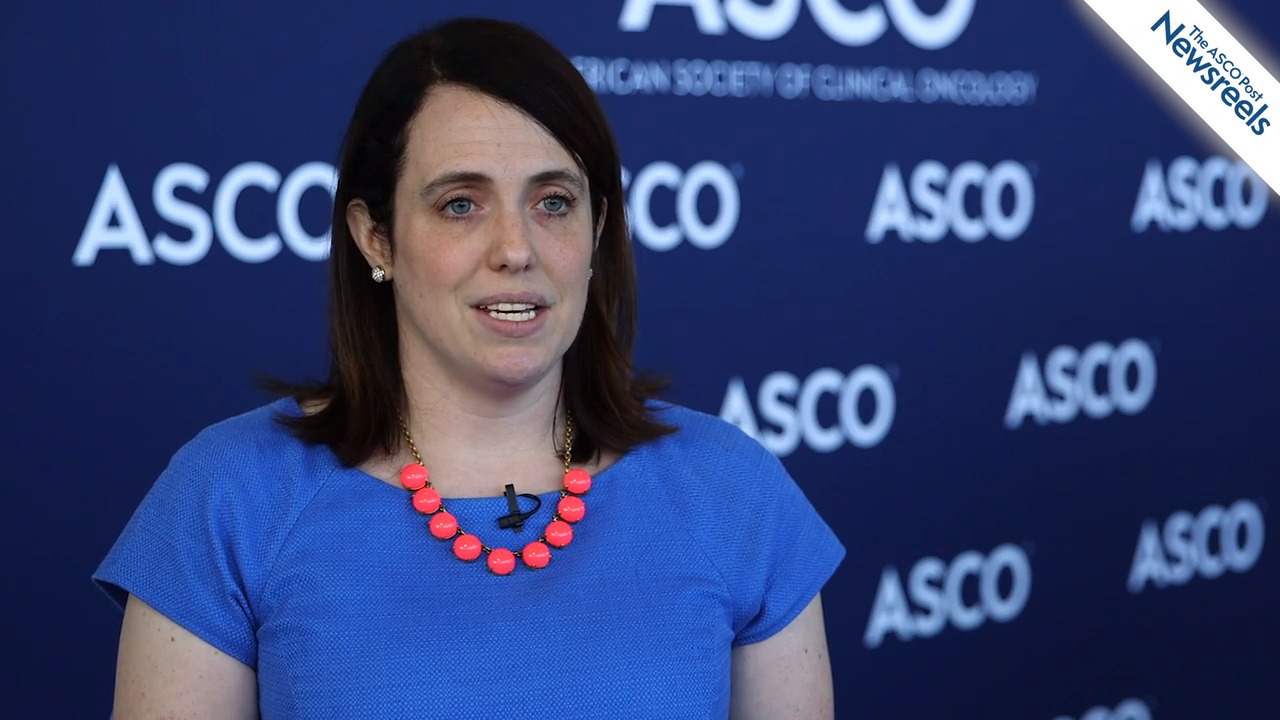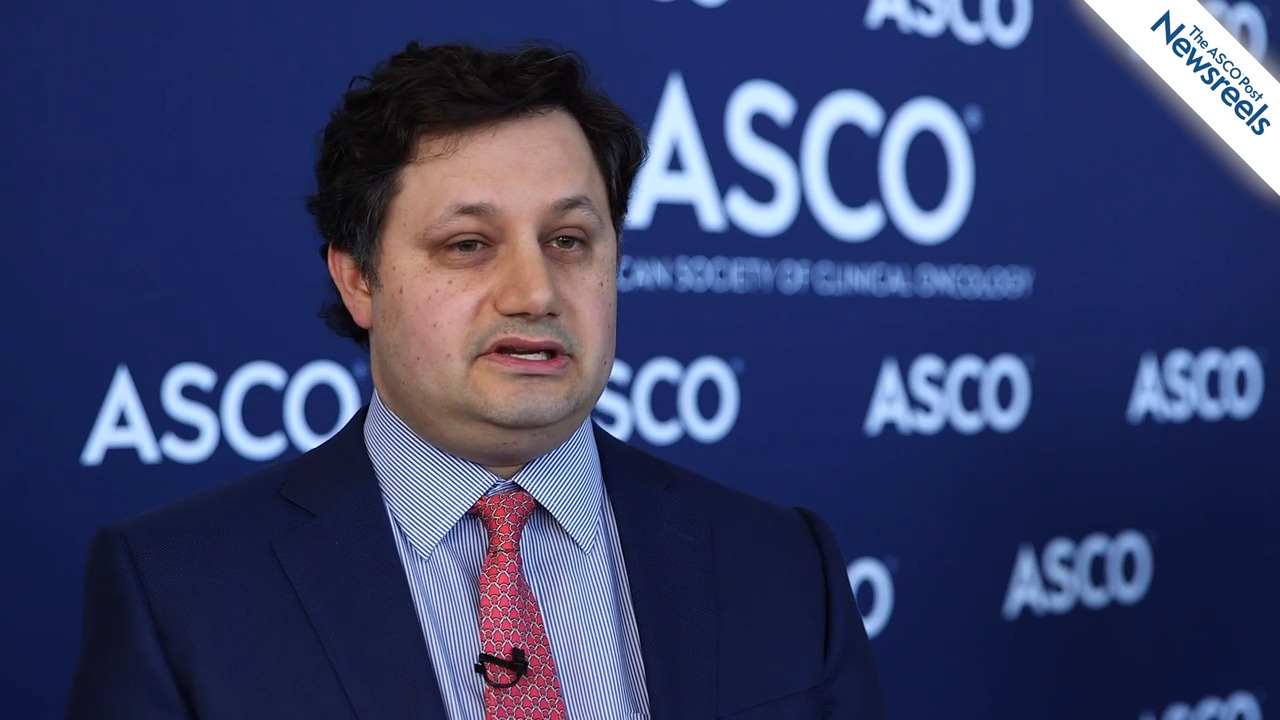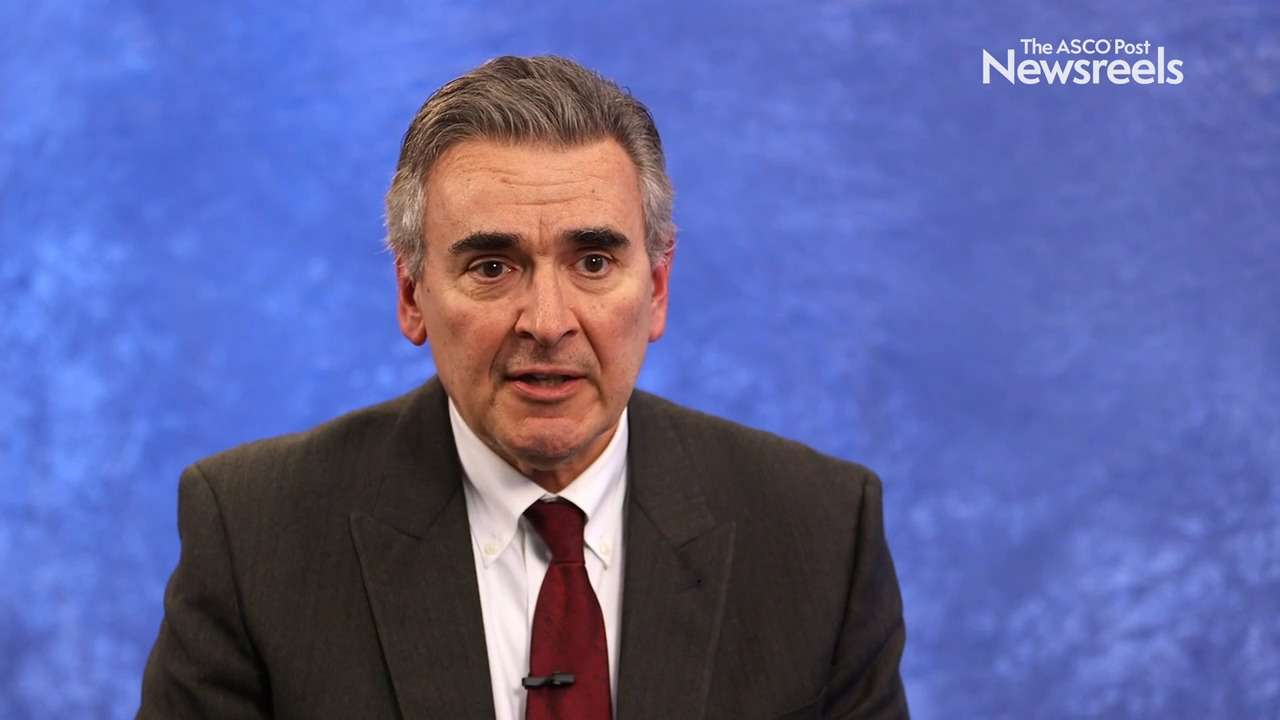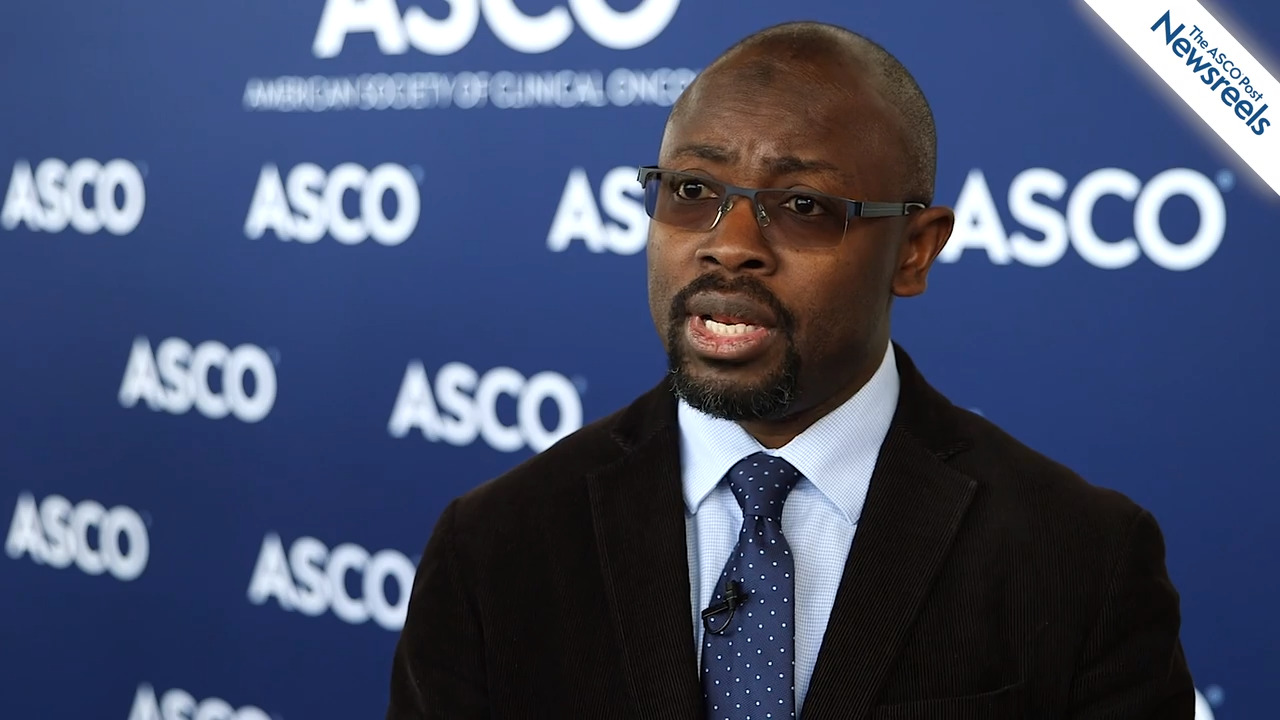Daniel P. Petrylak, MD, on Urothelial Cancer: Enfortumab Vedotin Monotherapy for Locally Advanced or Metastatic Disease
2019 ASCO Annual Meeting
Daniel P. Petrylak, MD, of Yale School of Medicine, discusses study results on enfortumab vedotin monotherapy for locally advanced or metastatic urothelial cancer previously treated with platinum and immune checkpoint inhibitors (Abstract LBA4505).
Kerry A. Rogers, MD, of The Ohio State University, discusses a 3-year follow-up of phase Ib safety and efficacy findings with the selective BTK inhibitor acalabrutinib and the anti-CD20 monoclonal antibody obinutuzumab in patients with CLL (Abstract 7500).
Brian C. Baumann, MD, of Washington University School of Medicine, discusses study findings that showed, for adults with locally advanced cancer across five different disease sites, proton chemoradiotherapy was associated with significantly reduced acute adverse events, with no difference in disease-free or overall survival (Abstract 6521).
Joseph A. Sparano, MD, of the Montefiore Medical Center and Albert Einstein Cancer Center, discusses how clinical risk stratification provides additional prognostic information to the 21-gene recurrence score and may be used to identify premenopausal women for more effective antiestrogen therapy (Abstract 503).
Taofeek Kunle Owonikoko, MD, PhD, of Emory University, discusses the findings of his phase II study, which assessed the efficacy of combined immune checkpoint inhibitors with or without radiation in relapsed small cell lung cancer (Abstract 8515).
Jason Westin, MD, of The University of Texas MD Anderson Cancer Center, discusses findings of the Smart Start study on the chemotherapy-free combination of rituximab, lenalidomide, and ibrutinib in newly diagnosed diffuse large B-cell lymphoma (Abstract 7508).





